On Air Now
Classic FM Breakfast with Dan Walker 6:30am - 9am
From writing the world's best-loved soundtracks - such as Star Wars and Harry Potter - to conducting at the Royal Albert Hall, John Williams is one of today's musical giants. But how much do you know about the film composer, from his movies to his net worth?
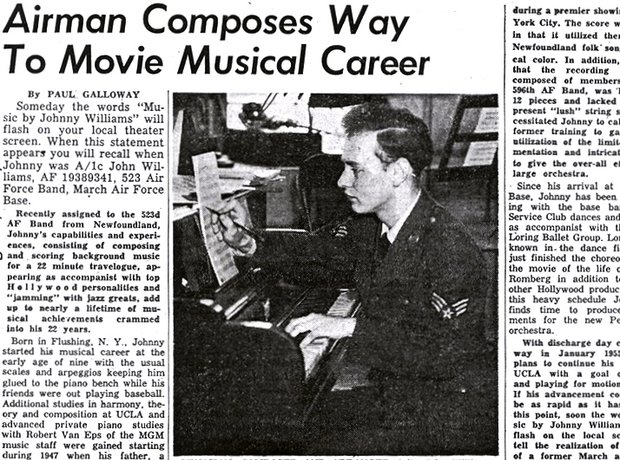
John Williams was born on 8 February 1932 in Long Island, and grew up in a musical family; his father was a jazz percussionist.
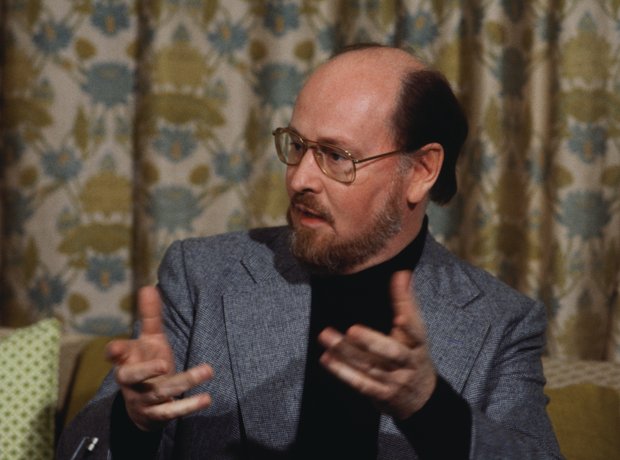
Young John attended UCLA while studying composition privately with Mario Castelnuovo-Tedesco. Drafted in 1952, Williams spent three years conducting and arranging music for the U.S. Air Force Band. After his service ended, Williams moved to New York City and entered Juilliard where he studied piano.
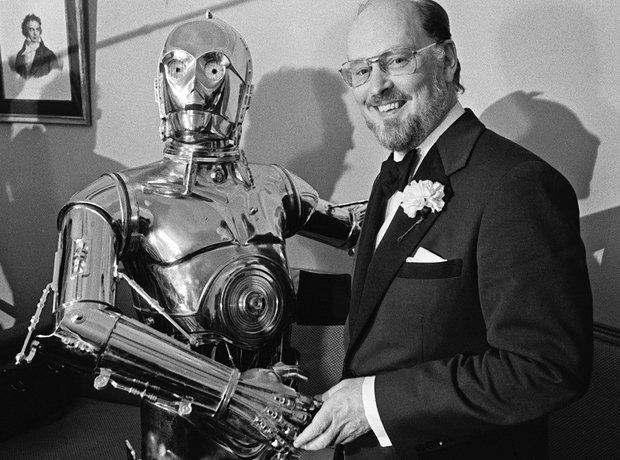
John Williams has composed some of the most popular and recognisable film scores ever, including Jaws, Star Wars, Superman, Indiana Jones, E.T., Jurassic Park, Schindler's List, Saving Private Ryan and three Harry Potter instalments.
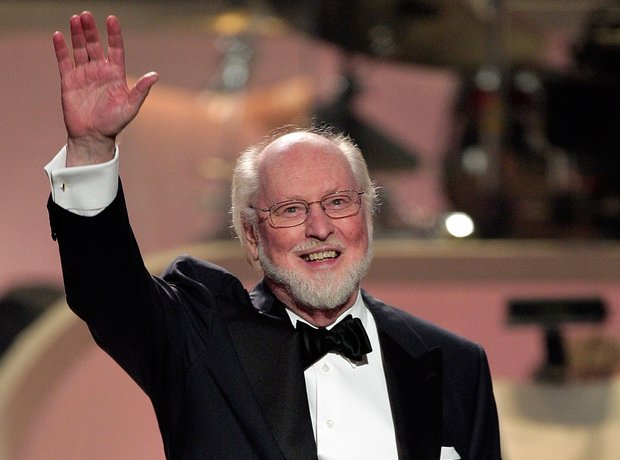
The film composer has won five Oscars, four Golden Globes, seven BAFTAs and 25 Grammys. With 52 Oscar nominations, he is second only to Walt Disney as most nominated person ever. His first-ever Oscan win was for musical direction for Fiddler on the Roof.
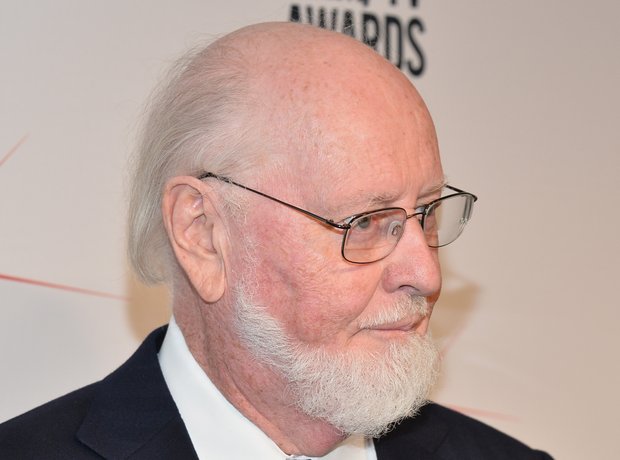
John Williams' net worth is an estimated $100 million, which he has amassed over 60 years spent as a successful film composer, conductor and pianist.
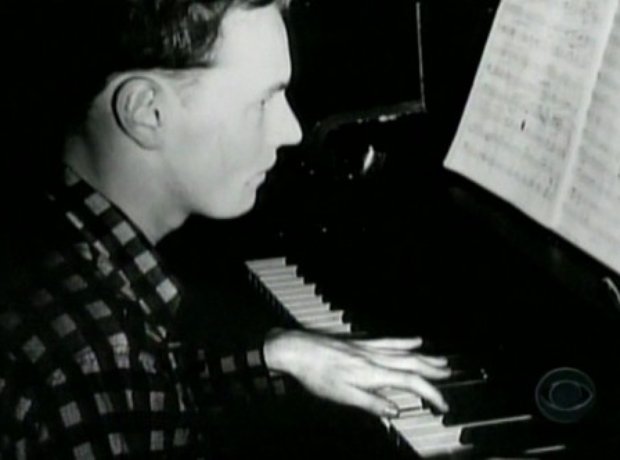
Williams worked as a pianist in jazz clubs and eventually studios, most notably for the brilliant Henry Mancini. 'Little Johnny Love Williams' played the famous piano riff on the groundbreaking Peter Gunn theme. Williams went on to be music arranger and bandleader for a number of albums for singer Frankie Laine.
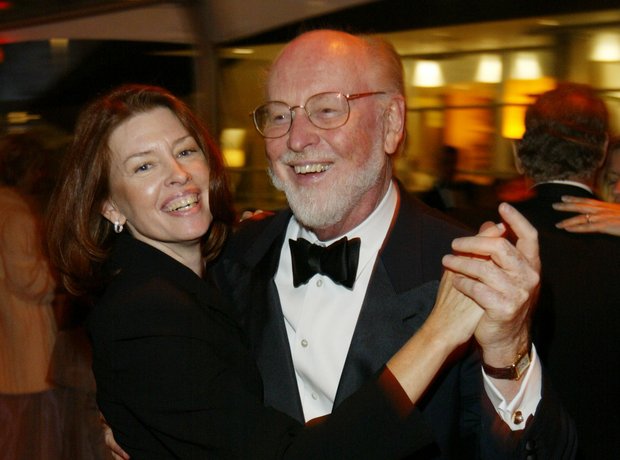
John Williams married photographer Samantha Winslow in 1980. He was previously married to Barbara Ruick from 1956 to 1974.
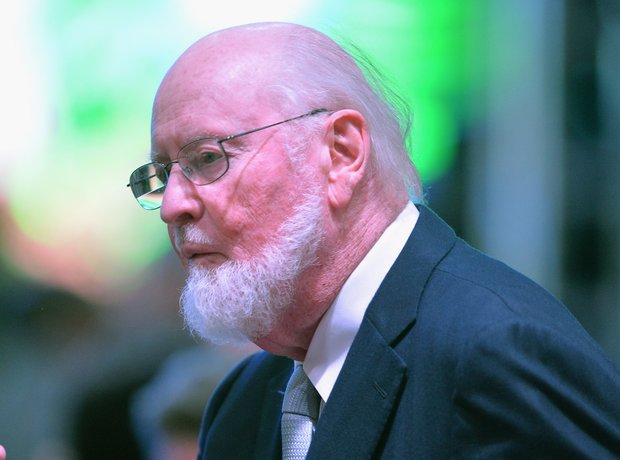
"Writing a tune is like sculpting," Williams once said. "You get four or five notes, you take one out and move one around, and you do a bit more and eventually, as the sculptor says, "In that rock there is a statue, we have to go find it."
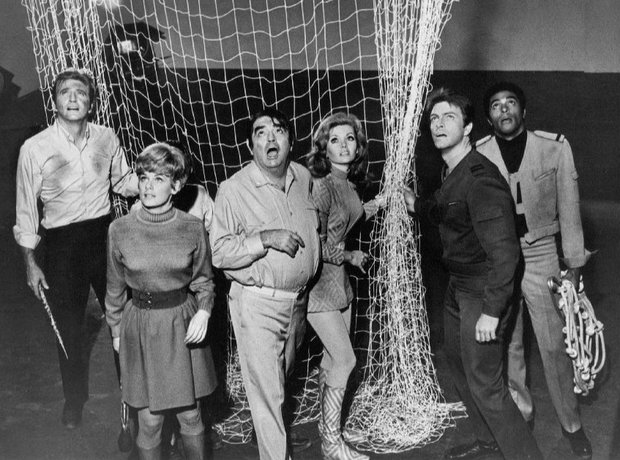
Williams returned to L.A. from New York. There he began working as an orchestrator at film studios with such legends from Hollywood's Golden Age as Franz Waxman, Bernard Herrmann, and Alfred Newman. He also developed his skills writing the music for hit 1960 TV shows, Gilligan's Island, Lost in Space, The Time Tunnel and Land of the Giants - pictured.
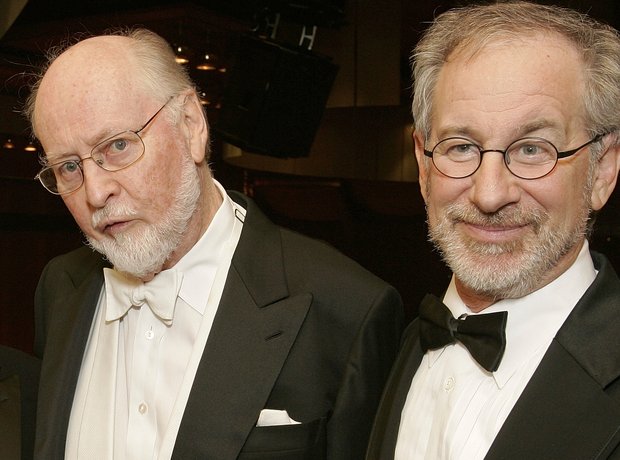
In 1974, a young director called Steven Spielberg approached Williams to compose music for his film, The Sugarland Express. They teamed up again the following year for Jaws. The threatening shark motif, two low notes played alternately on the tuba, has since become synonymous with sharks in general and danger at sea. Spielberg and Williams have gone on to work on more than 20 films together, most recently War Horse, Lincoln and The Adventures of Tintin.
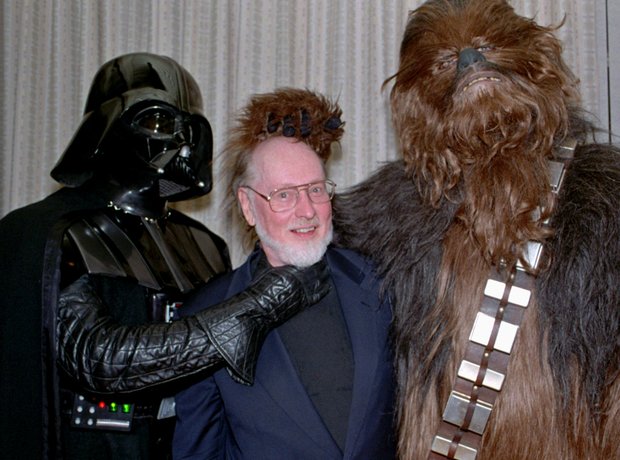
Spielberg recommended Williams to his friend George Lucas, who needed a composer for Star Wars. Williams delivered a grand symphonic score in the style of Hollywood's swashbucklers of the 1930s and 1940s. The soundtrack remains the best-selling non-pop record of all-time - and Williams won another Oscar for Best Original Score. He was also nominated for the follow-up scores for The Empire Strikes Back and The Return of the Jedi.
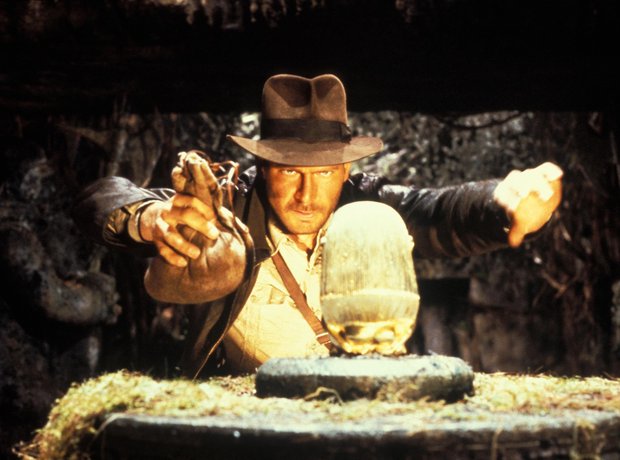
The late 1970s and early 1980s saw Williams at the peak of his powers and success. He scored Superman in 1978, followed by The Empire Strikes Back (1980), and Raiders of the Lost Ark (1981), created by George Lucas and directed by Spielberg. Williams' rousing Raiders March theme has defined the character of Indiana Jones and become a concert hall favourite in its own right.
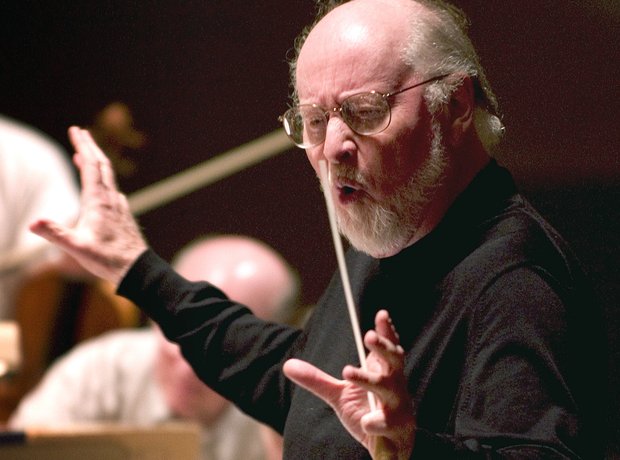
From 1980 to 1993, Williams was Principal Conductor of the Boston Pops Orchestra. He is now its Laureate Conductor, leading the orchestra on several occasions each year, particularly during their Holiday Pops season and a week of concerts in May. He conducts an annual Film Night at both Boston Symphony Hall and Tanglewood.
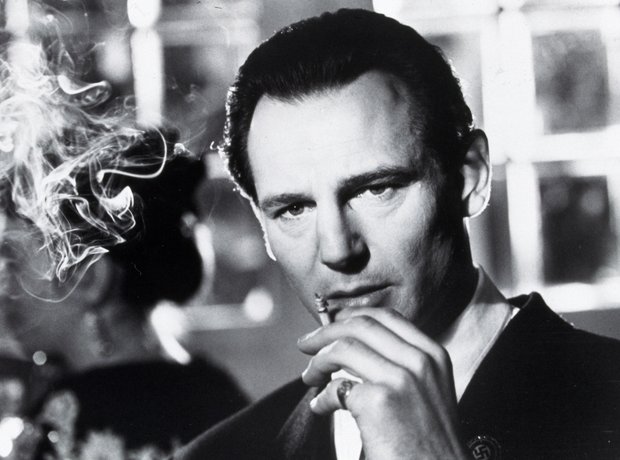
Considered by many to be the finest film score of recent decades, Schindler's List followed hot on the heels of Spielberg and Williams' collaboration on Jurassic Park - and it couldn't be more different. When he first saw the film, the composer told the director: 'You need a better composer than I am for this film.' Spielberg replied, 'I know. But they're all dead!' For the soundtrack Williams, following Spielberg's suggestion, hired the great violinist Itzhak Perlman. The film's main theme, played with such passion and emotional intensity by Perlman, is heartbreakingly simple and touching. For Schindler's List, Williams won his fifth Oscar.
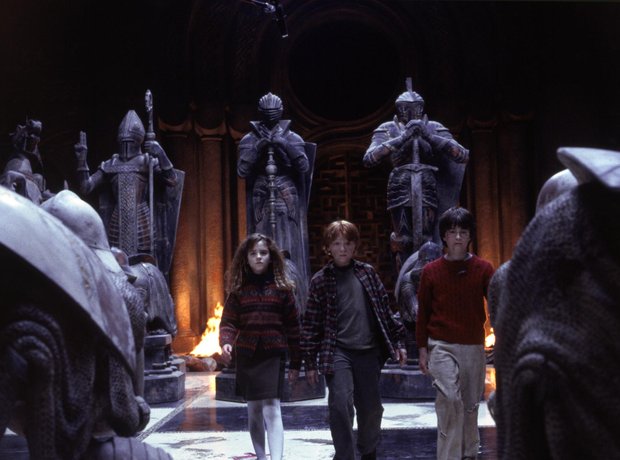
Moving into the 21st century, Williams was brought in to score the film adaptations of J.K.Rowling's hugely successful Harry Potter books. He worked on the first three instalments. Hedwig's Theme continued to be used through the whole series. Like the main themes from Jaws, Star Wars, Superman, and Indiana Jones, fans have come to identify the Harry Potter films with Williams' original compositions.
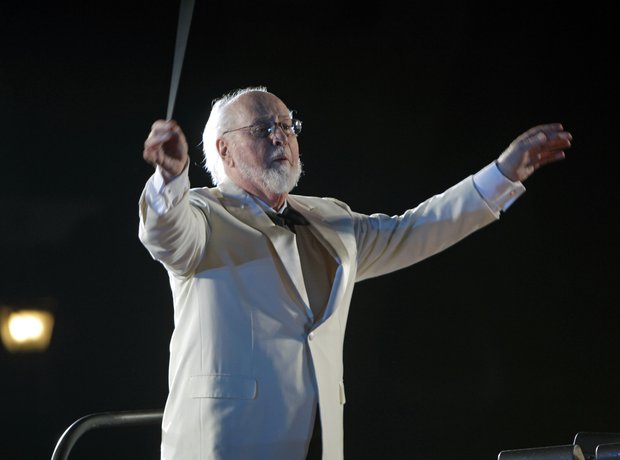
Williams has written numerous pieces for the concert hall, including a symphony and concertos for horn, clarinet, cello, flute and violin. His bassoon concerto, The Five Sacred Trees, which was premiered by the New York Philharmonic and its principal bassoon player Judith LeClair in 1995, was recorded by Williams with LeClair and the LSO.
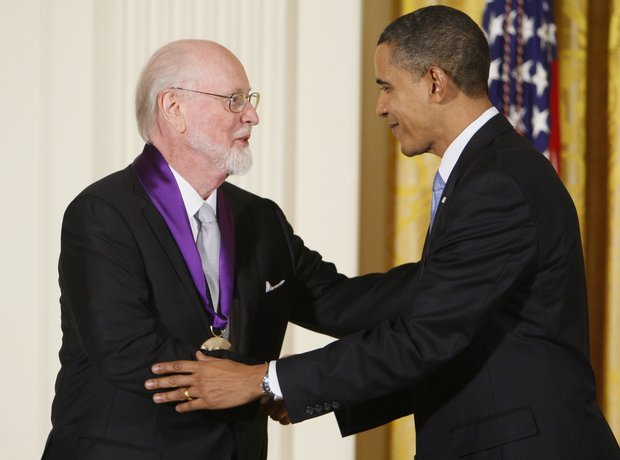
U.S. President Barack Obama presented the 2009 National Medal of Arts to John Williams on 25 February 2010, in the East Room of the White House in Washington. The Medal is the highest honour specifically given for achievement in the arts conferred to an individual artist on behalf of the American people. Williams received it for his achievements in symphonic music for films, and 'as a pre-eminent composer and conductor [whose] scores have defined and inspired modern movie-going for decades.'